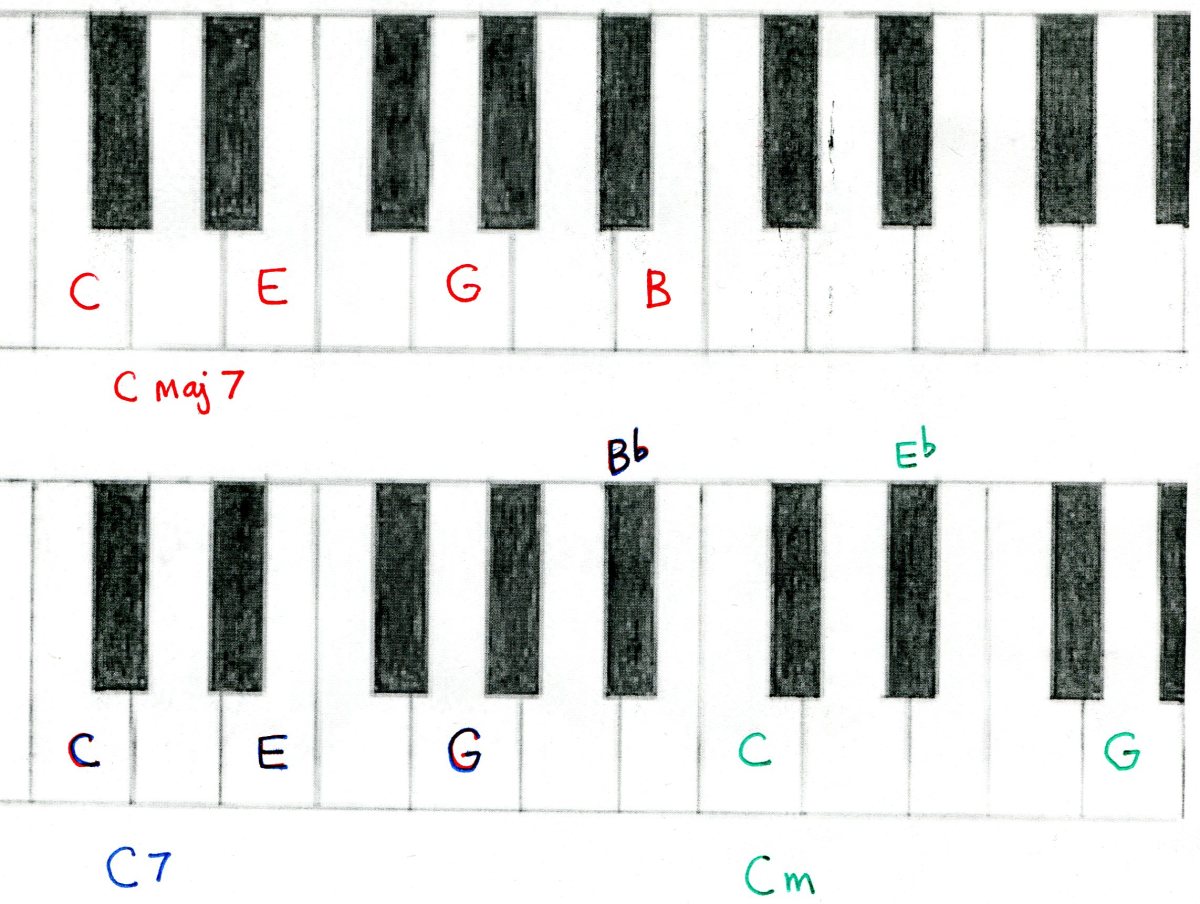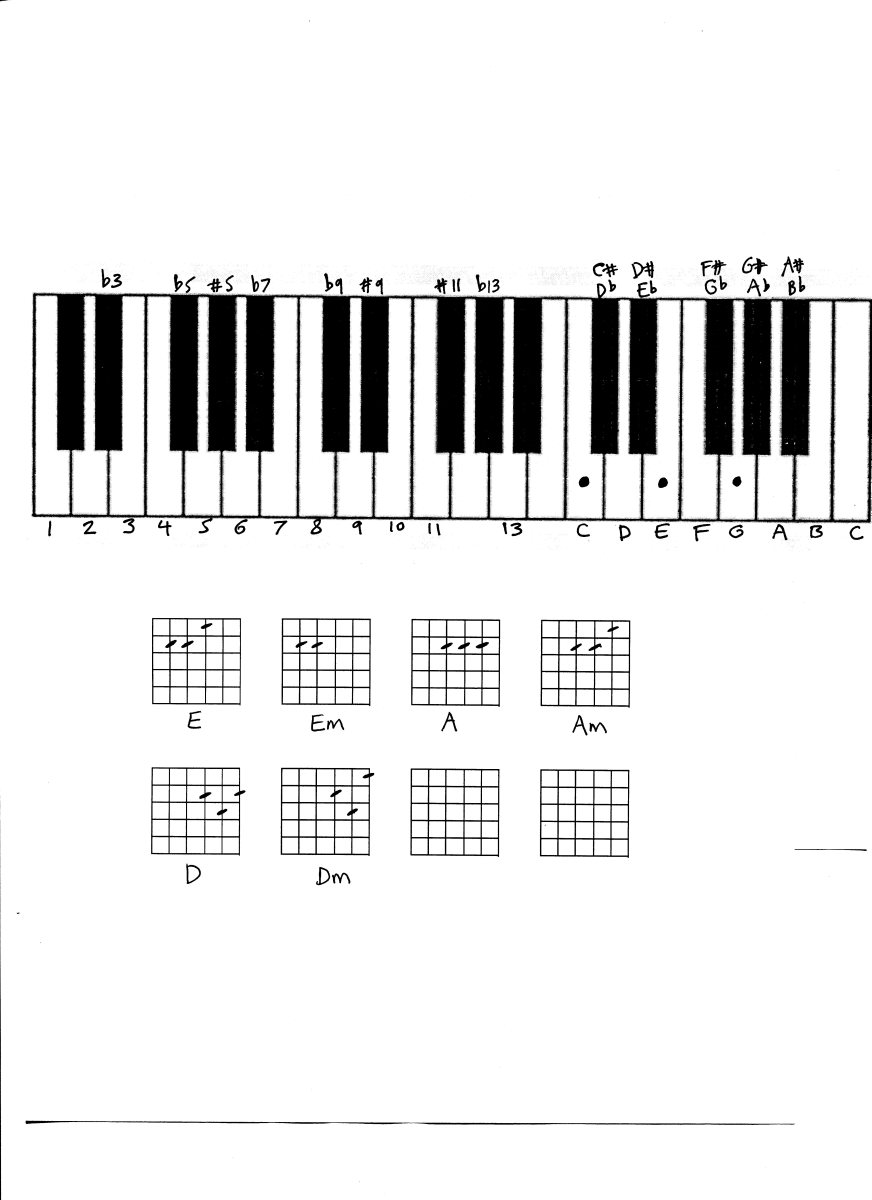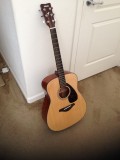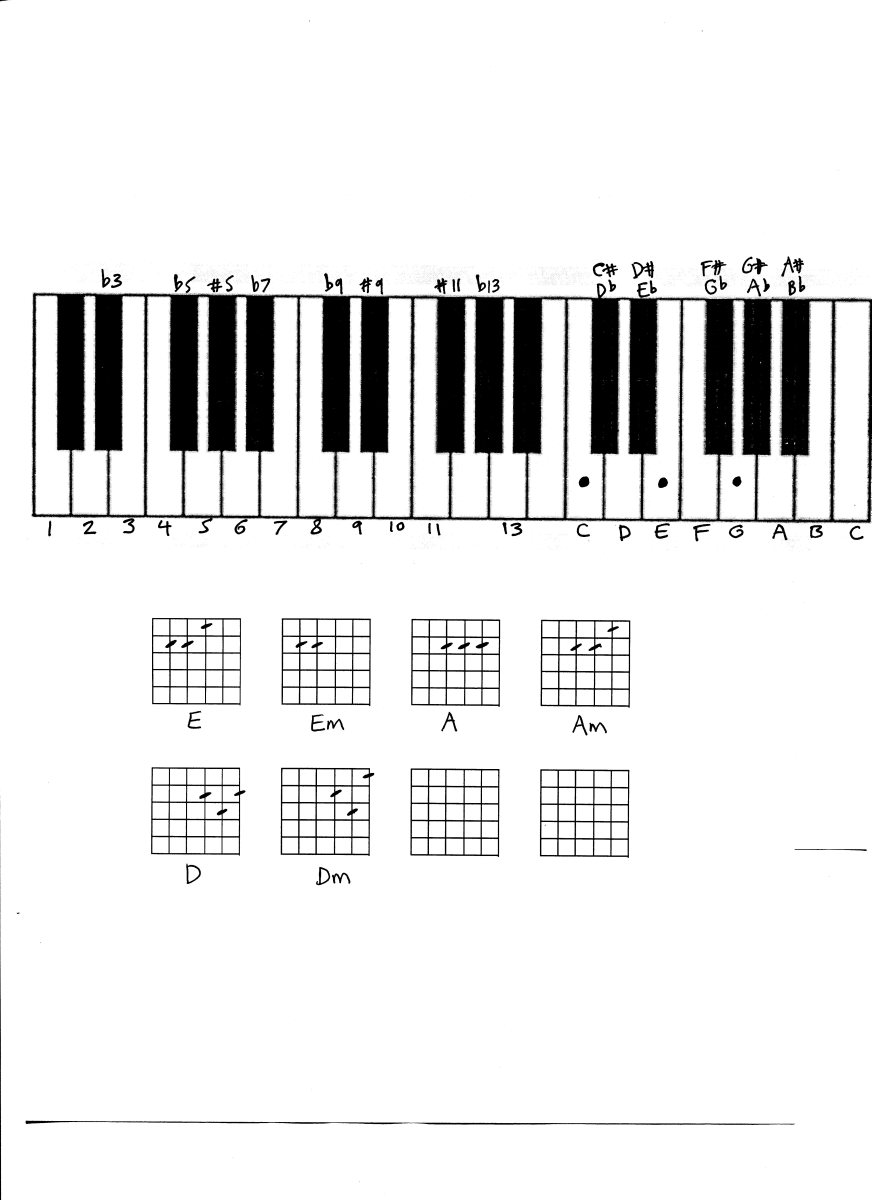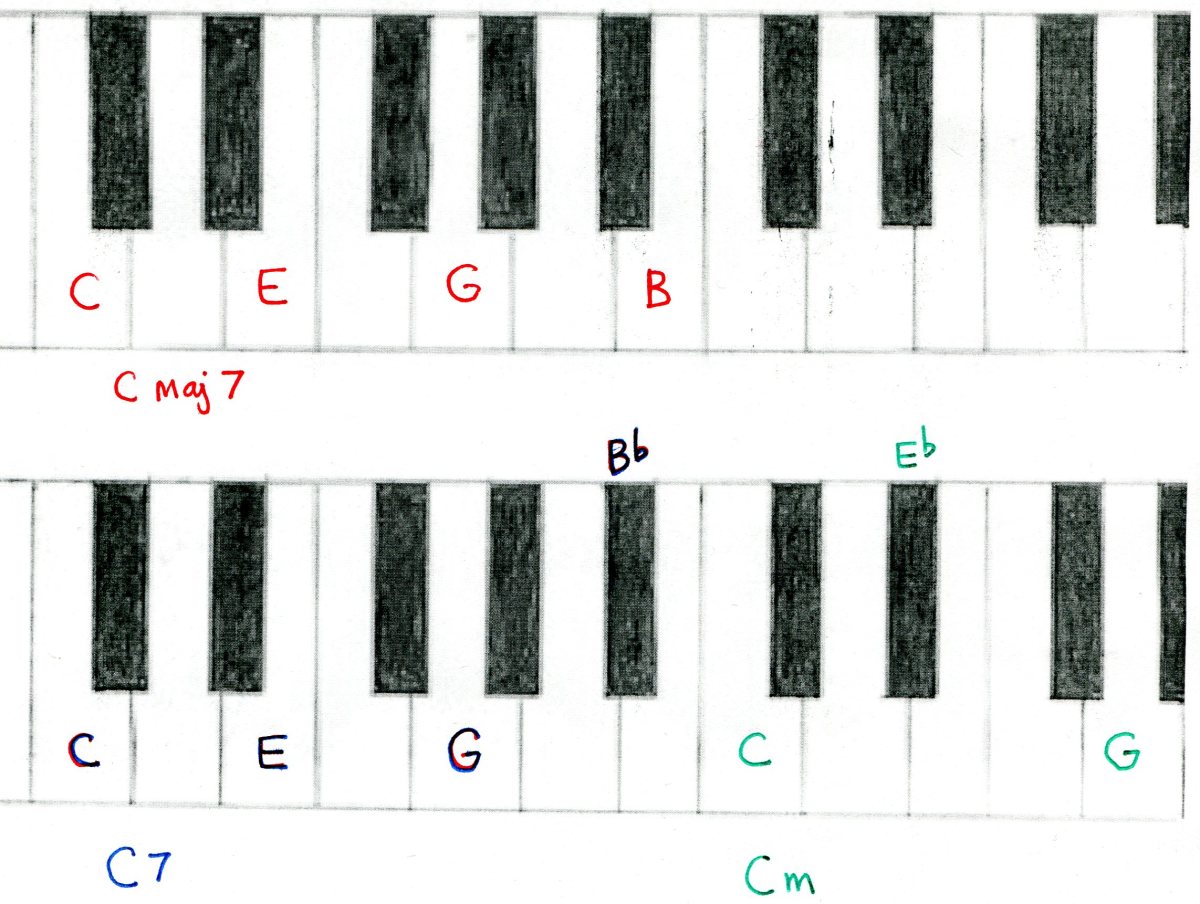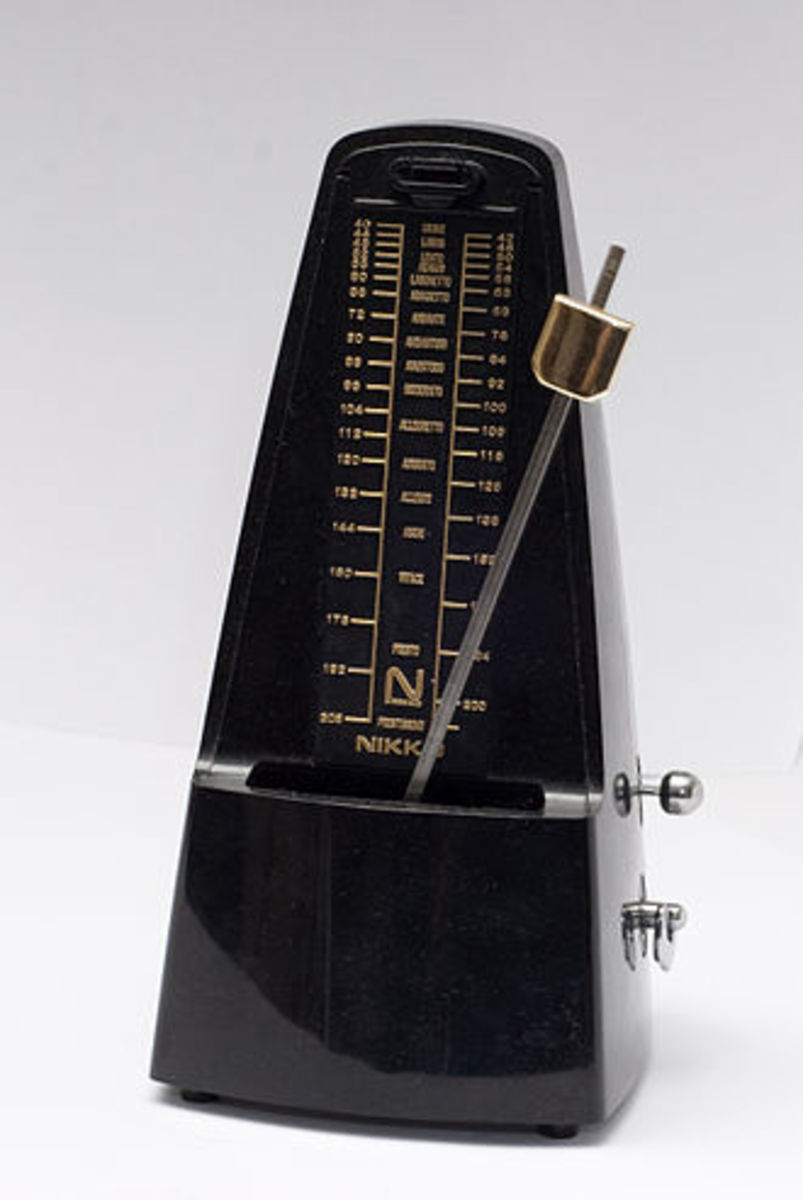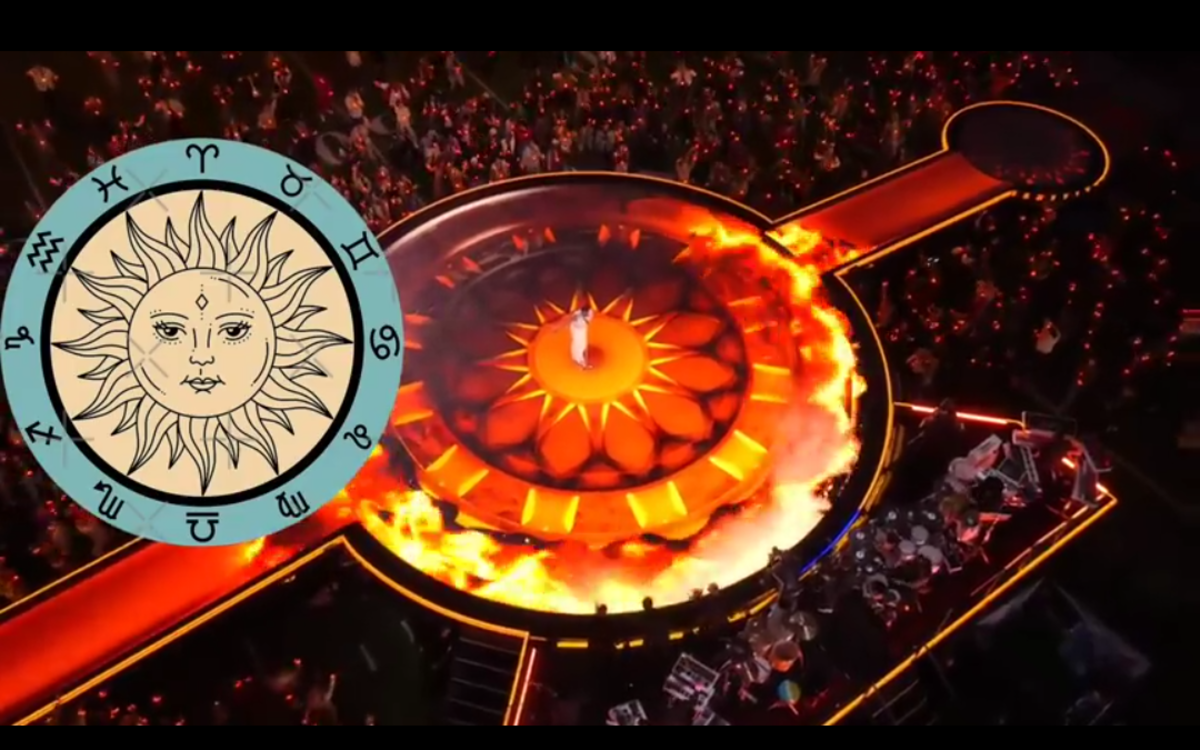Basic Piano Chords

There are a huge amount of chords that are possible, but most of them are more complex, and many pianist may never even use these complex chords. To be honest, a lot can be done by just learning the basic foundational chords and how to play them on the piano. How many chords you learn is really up to you, as you can sit down with chord charts and learn chord after chord!
I recommend first learning the basic piano chord listed in this article and the next article. Once you have mastered these and gotten your fingers and hands used to the positions (as well as ensuring the notes all sound clear as you hold the keys down), you can think about moving on to more complex chords. You may want to gradually add to your chord repertoire, learning 1 new one a week after the basics.
Many people don't realise it but a huge amount of popular and well known songs can be played by only knowing a handful of basic chords!
Below is your basic major chords written on sheet music, just to give you an idea and to tickle your tastebuds for learning more.
Reading Music Theoretically
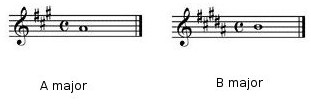
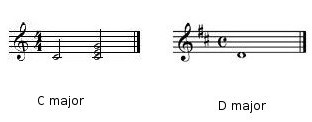
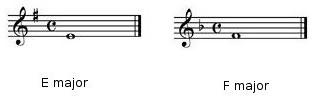
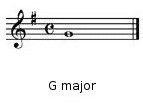
In music theory, chords are named using letters of the alphabet, and range from A to G (in between there are what are called sharps and flats)
Of each chord formation there are a variety of variations, but for your basic foundation we would recommend learning the majors, minors and sevenths of each.
In other words C major, C minor and C seventh. these would be written C, Cm and C7 respectively.
So over this article and the next one we are going to learn these variations from A to G using your right hand. The chords for both the left and right hands are the same, the position varies slightly.
The first group of these to learn - the majors, or in other words A, B, C, D, E, F and G
You may find that B and F major are the harder ones to learn, so try to master the other ones first. This will help your fingers get used to moving over the piano keys before you attempt the more complex B and F chords.
** One thing to remember when reading and or playing piano chords is that the root of a chord is the easiest to find as its name is in the name of the chord.
Firstly, pick a chord that you are going to learn, lets take C major for example. Next, look at the diagram below...
C major:
The root of C major chord would be C, it's third would be E and its fith would be G

Next, look at the diagram above again and position your fingers according to the diagram, making sure you place your finger of your right hand on:
C (1st finger – thumb) E (3rd finger – middle finger) and G (5th finger - pinky), as shown in the picture.
And left hand on:
C (5th finger - pinky), E (3rd finger - middle finger) and G ( 1st finger - thumb)
Remember the fingering for both hands...
Thumb: 1
Index finger: 2
Middle finger: 3
Ring finger: 4
Pinky finger: 5
- Piano: Hand Positioning
If you're not really sure, please refer back to my previous article on hand positioning.
Once you have figured out the positioning, attempt to play each note with your right hand and then your left. It does not matter right now if you sound like a great musician or not. What counts for now is that you learn how to correctly position your fingers so that each key produces a clear sound when you play it.
Once you master the chord, take your fingers off and try to put them back on again for the same chord. Again check the keys you're playing sound clear and that you're playing the correct notes.
At first it may seem like your fingers do not want to move into the correct positions, but persistence and practice will soon teach your hands how to move along and eventually it will become easy and just like second nature for them to go into position when you play the chord.
Once you've mastered the C major chord, we will look at the rest of the majors in the next lesson. I hope this has helped you move forward in learning to play your piano. As you work at it you will soon be a skillful musician!
Happy learning :)
Articles to help you learn how to play piano
- Part 1: The Basics Of Learning To Play Piano
Is it difficult to play the piano? Learning to play the piano is easier than you think. Really, the hardest part is the initial step is to go and sit behind your piano and be motivated to learn the basics.... - Part 2: Piano: Hand Positioning
When you play the piano or keyboard it is very important to position your hands, fingers, wrist, arm and the whole rest of your body correctly. Following these simple suggestions on positioning... - Part 3: Understanding Your Keyboard
In the previous article, we discussed some important principles that you, the new pianist, needs to keep in mind as you step out to learn the piano. In this article we will build upon those principles and... - Part 5: Basic Piano Chords Continue
The piano above shows which notes are being played for each key What we have seen so far This is the 5th article in a series on how to play piano. In the first article we went through some important things... - Part 6: Piano: Minor Chords
In the previous two articles (Part 4 and Part 5) we discussed the major chords from A to G. Now you are ready to be introduced to the minor scales from A to G. As you start learning to play these, you... - Part 7: Piano: Major Seventh Chords
Out of the major, minor and seventh chords, on the piano, the sevenths are probably a little harder to play, as it involves your fingers needing to stretch some, but easy to grasp as it will always be the... - Part 8: Piano: Dominant Chords
As you go along and learn to play piano, you will take note that the keys/chords are getting a little more complicated in their own right. But then that is how many things in life work. On the piano,...

